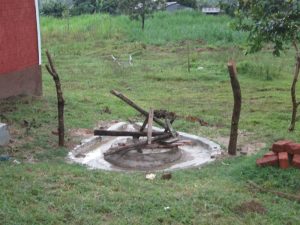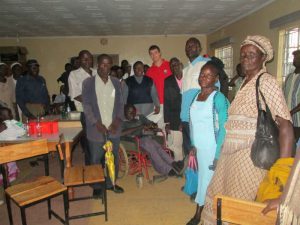Location
Malava, Central Kabras Division, Kakamega North District, Kakamega County, Kenya
Community Description
Malava is in the Western part of Kenya. It is about 4 hours north of Lake Victoria and 2 hours east of the Ugandan border.
This part of Kenya is the land of the Luhya Tribe. The Luhyas are known for being very peaceful and welcoming to all guests. Malava is almost equidistant to the large towns of Webuye and Kakamega and is right off the highway that connects the two.
It is otherwise the largest town in the area and serves as the hub for all surrounding towns. The population is currently about 15,000 and is rapidly growing. Over 80% of its citizens practice small-scale, subsistence farming. The most common crops grown are corn and sugar cane.
 Nine months out of the year it rains almost daily while the other three are completely dry. Nearly everyone struggles to find both food and water during the dry season.
Nine months out of the year it rains almost daily while the other three are completely dry. Nearly everyone struggles to find both food and water during the dry season.
St. Joseph the Worker is a Catholic mission containing a school and home for mentally challenged children, a dispensary, an epilepsy clinic, and a gymnasium for physiotherapy. The school currently has 45 students enrolled.
The children are divided into three main groups: rehabilitation, pre-vocational, and vocational training. The vocational students learn dress-making and tailoring. The mission of the school is the help the students reach the highest level of independence possible.
A local craftsman dug a borehole last year for the school using tuition fees. However, the hole was dug to only 27 meters, rather than the 40 meters that would have been needed. The hole is so shallow that it goes dry during the dry season between January and April.
 Project Description
Project Description
This project is to complete the borehole at St. Joseph the Worker Home for the Mentally Challenged.
This project will deepen the hole to 50 meters. At that depth, it will be functional all year for the school and can be used for the community at large during the dry season when other water sources become unavailable.
Sr. Joseph at, the administrator of the mission, has already contacted a different craftsman who has been recommended by a friend and is trustworthy.
The hole will be dug by hand. One person digs with a shovel, another person takes away the excess soil from the hole, and a third person takes that soil to where it can be dumped.
Currently, the well is lined with three layers and they will continue the lining when they deepen it. The first, outermost layer is a mixture of bricks and sand. the second layer is regular cement, and the innermost layer is water-proof cement.
Water is pulled from the well using a bucket tied to a rope. A cover is already available to protect the well when it is not in use.
In the future, when sufficient funds become available, a pump will be installed.
Water Charity funds will be used to pay the laborers and for materials. Materials include cement, sand, and stones.
The community will be in charge of maintaining and treating the borehole. The water needs to be treated with chlorine once every month. Also, the inside of the well is scrubbed about once every six months to remove any growths on the inner walls.
Project Impact
500 people will benefit from the project, including 45 students, 6 teachers, 11 staff members, 5 families and 3 nuns who live on the compound, and people from the surrounding houses who will get water during the dry season.
Peace Corps Volunteer Directing Project
Charles Sexton
Comments
This is a critical project that will bring water to a vulnerable group that doesn’t have the means to do it without help.
Dollar Amount of Project
$555.00
Donations Collected to Date
$390.00
ADOPT THIS PROJECT BY CONTRIBUTING THE DOLLAR AMOUNT NEEDED BELOW
Donations of any amount will be appreciated. The full amount will give you “naming rights”, if that is something you would like.
Any contributions in excess of the Dollar Amount of the Project will be allocated to other projects directed by this PCV and/or projects of other PCVs in this country.
Dollar Amount Needed
$165.00
![]() This project has been finished. To read about the conclusion of the project, CLICK HERE.
This project has been finished. To read about the conclusion of the project, CLICK HERE.